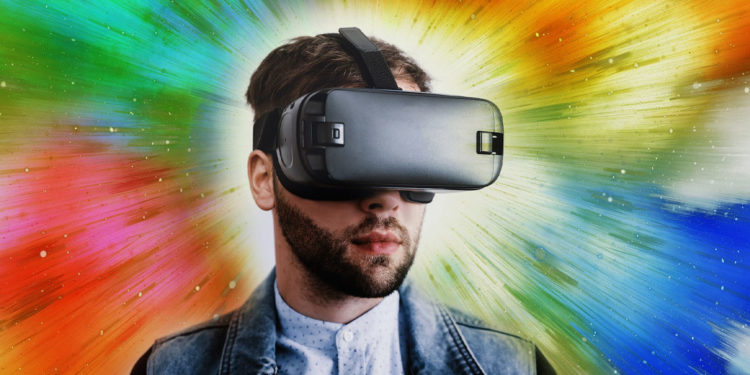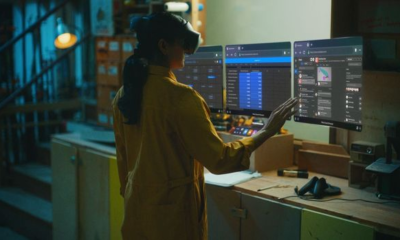Artificial Intelligence
Virtual reality can induce mild and transient symptoms of depersonalization and derealization, study finds

New research sheds light on how virtual reality (VR) can influence a person’s sense of reality. The findings have been published in the journal Computers in Human Behavior.
There have been some preliminary indications that the use of VR technology can induce feelings of alienation towards one’s own self and a feeling of detachment from reality — phenomena known as depersonalization and derealization, respectively. To provide a clearer understanding of VR’s true effects, the authors of the new study conducted a longitudinal randomized control trial.
“Since VR is a technology that can strongly influence people’s experience of reality, at least during VR exposure, we wondered whether VR might also affect their experience of reality towards the ‘real world’ after VR exposure,” explained study author Niclas Braun, the head of the Virtual Reality Therapy and Medical Technology research group at the University of Bonn.
“And indeed: After a short internet search, we found some forum posts in which VR gamers complain about various dissociative symptoms and alienation experiences, which they attribute to their VR consumption. This prompted us to conduct the study to find out whether VR might indeed cause such symptoms of depersonalization and derealization.”
For their study, the researchers randomly assigned 80 participants (who were free of psychiatric or neurological disorders) to play the game The Elder Scrolls V: Skyrim either using a head-mounted VR display or using a classic PC computer screen. The participants completed the German state version of the Cambridge Depersonalization Scale during four different time points: immediately before gaming, immediately after gaming, one day after gaming, and one week after gaming. They also completed assessments of emotional responsiveness, VR-induced motion sickness, and perceptual realness immediately after gaming.
Braun and his colleagues found that depersonalization and derealization tended to be higher immediately after gaming among both groups of participants. However, they observed a greater increase among those who played Skyrim via a head-mounted VR display. The researchers also found that the perceptual realness of Skyrim was rated significantly higher in the VR group than PC group.
“What our study shows is that half an hour of VR use can induce mild symptoms of depersonalization and derealization, which, however, do not reach clinically significant levels and are only evident directly after VR use,” Braun told PsyPost.
However, Braun noted that “whether long-term depersonalization and derealization symptoms can also occur, and to what extent long-term VR use leads to an intensification or attenuation of depersonalization and derealization symptoms, is still unclear and requires further investigation.”
“Our study indeed leaves many questions unanswered,” he added. “For example, we have only examined one VR game so far, and it is therefore unclear to what extent our found effects are transferable to other VR games or VR applications. Also, we have so far only studied healthy individuals, but not different, potential risk groups (e.g., individuals who have an increased risk of psychosis, or individuals who already suffer from an anxiety disorder or post-traumatic stress disorder).”
The study, “Virtual reality induces symptoms of depersonalization and derealization: A longitudinal randomised control trial“, was authored by Carina Peckmann, Kyra Kannen, Max C. Pensel, Silke Lux, Alexandra Philipsen, Niclas Braun.







